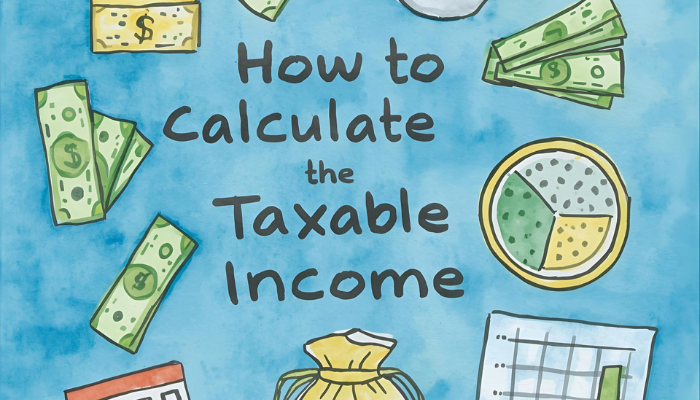
Are Estate Planning Fees Tax Deductible?
Scrabbling about are estate planning fees tax deductible or not is a matter of essentiality as it is one of the crucial aspects of how financially you’re prepared. This certifies the appropriate and justified distribution of your possessions after your prospective demise. Nonetheless, the creation of a comprehensive estate plan involves professional assistance and cooperation from attorneys, accountants, and core tax and financial advisors, which also proves to be helpful in matters of federal and state audit representation.
While delving into the entangled intricacies of estate or property planning, it is natural to ponder over are estate planning fees are tax deductible or not. The shortest answer to this question is, ‘No.’
The detailed answer, however, suggests that most of the estate planning fees are not tax deductible, and there’s a bit more than that. If corresponding to income-generating assets, you can deduct a legitimate part from the payable fees of estate planning.
Before the TCJA: Are Estate Planning Fees Tax Deductible?
Before the Tax Cuts and Jobs Act (TCJA) came into existence and implementation, it was permissible from the federal income tax return to deduct specific planning fees of the properties, which were categorized as ‘miscellaneous itemized deductions.’
Back in time, the questions such as ‘Are estate planning fees tax deductible?’ or ‘Is tax preparation deductible?’ were also common concerns among the people. A particular amount was subjected to estate planning fees deduction, which was known as the ‘2% floor.’
According to this term, the taxable amount was only able to be deducted to the extent that it exceeded 2% of the adjusted gross income (AGI) of the taxpayer.
For instance, suppose your estate planning and other expenses of miscellaneous deductions, including tax preparation fee and unreimbursed employee expenses, have exceeded the limit of 2% floor. In such a case, the extra amount is claimable as an itemized deduction on Schedule A of your tax return.
Navigate the Complexities of Estate Planning Fees
The incurred charges while consulting and availing of assistance from professionals for the purpose of drafting and executing several legitimate documents, including the power of attorneys, trusts, wills, and medical directives, confine the concept of estate planning fees. This fee is subject to variation in accordance with the complexity of your properties and the professional services rendered by the experts.
Detailed insight into the previous or historical records of the world of tax reveals that estate planning fees used to be tax deductible under certain conditions. However, this deduction is not valid anymore because, according to the Tax Cuts and Jobs Act (TCJA) 2017, substantial amendments were made to the compound landscape of taxation.
These modifications made a huge impact on a number of aspects, including the hindrance of tax deductibility of estate planning. As a consequence, additional restrictions started to be imposed on these fees. This became quite an alarming situation for the individuals that they had to reconsider their estate planning strategies.
Current Deductibility Limitations
Coming into effect in 2018, the TCJA has suspended all the miscellaneous itemized deductions, which are subjected to 2% floor conceptualization. This significant change also targeted the tax deductibility of estate planning fees.

Whether it is fortunate or unfortunate, this drift will stay in implementation till 2025. And during this span, you (as taxpayers) will not be able to claim these expenses as tax deductions.
Keeping in view customized profits and losses, many individuals and business owners found themselves with minimum itemized deductions and have opted to obtain standard deductions instead, owing to the fact that it has been increased under the TCJA – 2018 to 2025. This offers a flat deduction, requiring individuals to itemize their deductions.
Recent & Considerable Modifications in State Tax
The variations in the taxation laws of the state are obvious because the TCJA has dissolved the deductibles on miscellaneous items that impacted the federal tax return. However, some countries are still lenient toward allowing the deductibility of estate planning tax fees.
Those countries or states which permit these deductions must evaluate the taxation laws of their state by consulting tax experts to determine an agreeable approach that proves to be in the best of the state’s interests.
What is deductible from a taxable estate?
Estate tax liability calculations often incorporate specific expenses and liabilities as deductions against a taxable estate that will reduce its total value subject to taxation, such as:
- Funeral expenses: Funeral and burial costs paid from an estate can generally be deducted.
- Debts and mortgages: Any outstanding liabilities at the time of death, such as loans and mortgages, should be deducted from taxable estate valuation. A mortgage loan or simply mortgage , in civil law jurisdictions known also as a hypothec loan, is a loan used either by purchasers of real property to raise funds to buy real estate, or by existing property owners to raise funds for any purpose while putting a lien on the property being mortgaged. The loan is “secured” on the borrower’s property through a process known as mortgage origination.
- Estate administration expenses: Costs associated with administering an estate, such as legal fees, executor fees, appraisal fees and administrative expenses, may be tax-deductible.
- Charitable Deductions: Donations made to qualified charitable organizations or foundations can be deducted from an estate’s taxable estate and lower its tax liabilities, decreasing estate taxes accordingly.
- State Death Taxes: If your state levies an estate or inheritance tax, any state death taxes paid by an estate could be deducted from its federally taxable estate value.
As estate tax laws and deductions vary depending on your jurisdiction, seeking advice from an estate planning attorney or tax advisor for maximum tax efficiency within legal parameters is advisable.
The Final Wrap Up
Summarizing the discussion on ‘ Is estate planning tax deductible’, it is evident from the above-mentioned facts that it used to be deductible before the TCJA 2017 was passed and came into effect in 2018, which shall last up to 2025.
A temporary hindrance limited its deductible for federal income taxation. Regardless of such restrictions, estate planning will always be an essential and considerable aspect of your financial planning.
Better be late than never! It is highly recommended to seek trustworthy professional help from financial advisors and tax advocates who can provide the best guidance to navigate these complexities, enabling you to make informed decisions in a timely manner.


